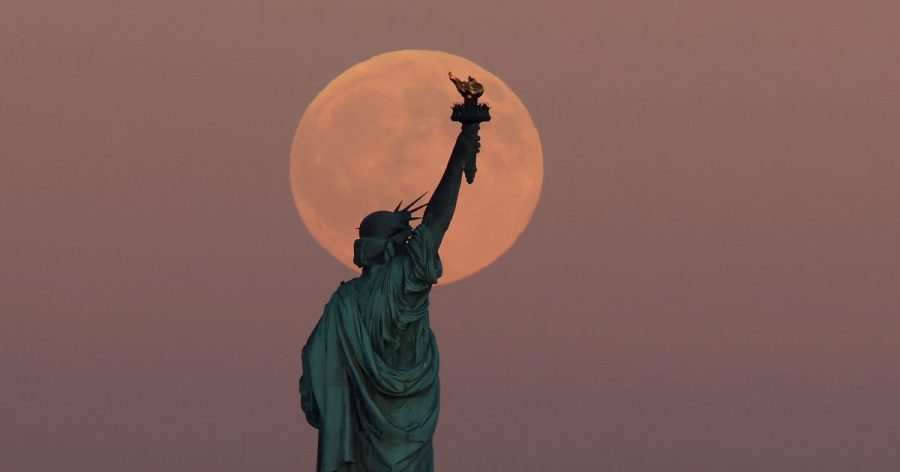Top Stories
Full Moon’s Impact on Sleep: Neurologist Reveals Key Findings

UPDATE: New research confirms that the full moon can affect sleep patterns, leaving many people tossing and turning under its bright glow. Neurologists emphasize that while the Harvest Supermoon rises on October 6, 2025, its impact on sleep may be more significant than previously thought.
A neurologist specializing in sleep medicine reveals that studies show individuals sleep about 20 minutes less in the days leading up to a full moon, taking longer to drift off and spending less time in deep, restorative sleep. This phenomenon is attributed to the bright moonlight, which can delay the body’s internal clock and lower melatonin levels, keeping the brain alert.
The evidence indicates that those in rural areas, away from artificial lights, experience the strongest effects. Interestingly, research suggests different impacts on men and women; men may lose more sleep during the waxing phase, while women report less deep sleep around the full moon.
Why This Matters NOW: With sleep deprivation linked to a range of mental health issues, including anxiety and mood disorders, the implications of this sleep disruption are serious, particularly for vulnerable populations. Individuals with conditions like bipolar disorder may be more sensitive to changes in sleep, making the modest loss of sleep during a full moon even more concerning.
Authorities confirm that while historical beliefs tied the full moon to mental health crises, modern studies show no reliable pattern linking lunar phases to psychiatric admissions. In fact, data from psychiatric hospitals in India and China suggest minor increases in certain conditions during full moons, but these findings lack consistency globally.
As we approach the full moon, the warning is clear: sleep loss can significantly affect mental health, especially for those already at risk. The myth of the “full moon effect” often overshadows more pressing issues, such as the impact of modern lighting on our sleep cycles.
Experts point out that the moon’s influence pales in comparison to artificial light sources, which can disrupt circadian rhythms and lead to fragmented sleep. As daylight saving time approaches, the extra light in the evening can exacerbate sleep issues, contributing to broader health risks.
While the full moon may not drive people to madness, its subtle effects on sleep highlight the crucial importance of nighttime light exposure. For those struggling with sleep, experts recommend examining local factors, such as screen time or streetlight brightness, rather than attributing restlessness to the moon.
As the Harvest Supermoon approaches, it serves as a reminder to prioritize sleep hygiene. The effects of lunar phases may be small, but they offer insight into the larger conversation about mental health and sleep in our modern world.
Stay informed as we continue to monitor the latest developments on this topic.
-

 Science2 weeks ago
Science2 weeks agoIROS 2025 to Showcase Cutting-Edge Robotics Innovations in China
-

 Politics2 weeks ago
Politics2 weeks agoJudge Considers Dismissal of Chelsea Housing Case Citing AI Flaws
-

 World2 weeks ago
World2 weeks agoBravo Company Veterans Honored with Bronze Medals After 56 Years
-

 Top Stories2 weeks ago
Top Stories2 weeks agoIndonesia Suspends 27,000 Bank Accounts in Online Gambling Crackdown
-

 Lifestyle2 weeks ago
Lifestyle2 weeks agoStone Island’s Logo Worn by Extremists Sparks Brand Dilemma
-

 Health2 weeks ago
Health2 weeks agoStartup Liberate Bio Secures $31 Million for Next-Gen Therapies
-

 Sports2 weeks ago
Sports2 weeks agoMel Kiper Jr. Reveals Top 25 Prospects for 2026 NFL Draft
-

 Health2 weeks ago
Health2 weeks agoTop Hyaluronic Acid Serums for Radiant Skin in 2025
-

 World2 weeks ago
World2 weeks agoHoneywell Predicts Record Demand for Business Jets Over Next Decade
-

 Lifestyle2 weeks ago
Lifestyle2 weeks agoMary Morgan Jackson Crowned Little Miss National Peanut Festival 2025
-

 Sports2 weeks ago
Sports2 weeks agoYamamoto’s Mastery Leads Dodgers to 5-1 Victory in NLCS Game 2
-

 Politics2 weeks ago
Politics2 weeks agoNew Jersey Voters Urged to Register Ahead of November Election









